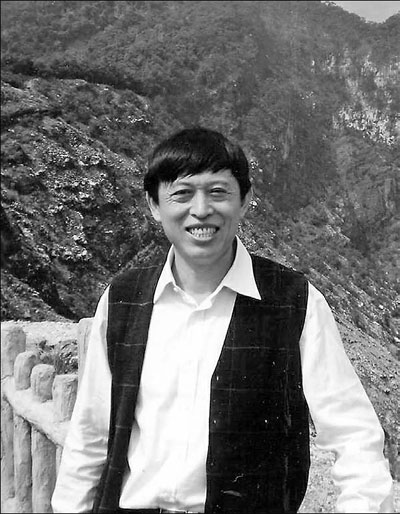Life and Leisure
Tales from a fortuneteller
By Yang Guang (China Daily)
Updated: 2010-09-29 08:03
 |
Large Medium Small |
|
Lu Xinhua, known for creating the first piece of "scar literature" in the 1970s, tries to make a return with his new book, Fortune as Water, after going into business for more than 20 years. Provided to China Daily |
The writer, who was once the youngest member of the Chinese Writers Association, returns to his calling after a detour that includes the hallways of academia and the bright lights of a casino. Yang Guang reports
The journey from promising newcomer in the late 1970s to lackluster businessman to freelance writer trying to make a return to the literary scene with his new book, Fortune as Water, has been a bumpy one for Lu Xinhua.
When he was a freshman at Shanghai-based Fudan University in 1978, Lu shot to fame with his debut short novel Scar.
It tells the story of Wang Xiaohua, who denounces her mother during the "cultural revolution" (1966-76), and chooses to leave home to develop her character in the countryside. After nine years of separation, Wang decides to return to her mother, only to find she has died.
"I was all in tears, when finishing it in the wee hours of a late spring morning," the 56-year-old recalls. "I felt I had lived my life, even if I had to die the next minute."
The story was an instant success and made Lu, then 24, the youngest member of the Chinese Writers Association.
Literary critic Hong Zicheng says the enthusiasm for Scar can be attributed to its examination of the individual traumatic experiences caused by the "cultural revolution".
It was the first piece of "scar literature", a literary genre portraying the sufferings of cadres, intellectuals, and educated urban youth during the "cultural revolution".
"For me, the success of the story was like winning a lottery," Lu says. "It was in fact written by the tens of millions of people who suffered in the turbulence. I was lucky enough to give it shape."
After graduation, Lu worked as a journalist in Shanghai for a while and then went into business in Shenzhen, Guangdong province.
"The idea was simple. I had been a farmer, a soldier, a worker and an intellectual and I wanted to try business," he explains.
"Besides, I realized that only after achieving financial independence could I enjoy the freedom of writing."
Business was slack but he kept writing and after publishing a novel Dream of the Forest, he decided to realize a long-cherished dream - to go abroad and "see the country from a different perspective".
With $500 in his pocket, Lu boarded a plane to the United States in 1986, for a master's degree in East Asia Studies at the University of California, Los Angeles.
At 32, he started afresh. To make ends meet, he worked as a pedicab driver during the weekends. "It is a job I still take delight and pride in," Lu says. "The benefits are threefold: making money, exercise and practicing English."
Two years later, he finished his studies and reunited with his wife and children in the US. But business luck seemed to elude him again. To make ends meet he trained to be a dealer in a casino.
Lu says he made use of his time at the gambling table to observe people.
"Sometimes I would feel low and question myself, but I was able to reassure myself because I knew it was what I wanted."
His time in the casino prompted him to ponder the nature of chance and Lu crystallizes his reflections in his new book, to help people free themselves from the caprices of Lady Luck.
"Fortune bears the properties of water - it flows, freezes, evaporates and the water that keeps afloat the boat is the same that swallows it up," he says.
For Lu, while Scar is about the traumas of the "cultural revolution", the new book is about the hurts of contemporary society and its obsession with fortune.
Lu left the casino in 2000. "It was easy money, so I had to be on guard against becoming alienated by it," he explains.
Wu Zhongjie, professor of Chinese at Fudan University, says Lu may appear to have taken a detour, but he has actually scaled a greater height.
Despite life's many ups and downs, Lu says he does not regret any of his choices.
"Life is like going to a cinema. Each person must find his own place, however badly he wants to take the center seat."
(China Daily 09/29/2010 page20)
